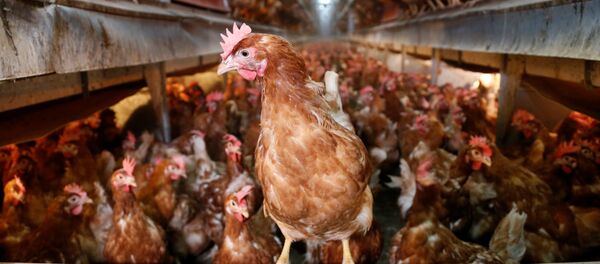BRUSSELS (Sputnik) — A scandal is gaining momentum in the European Union following the discovery of hazardous insecticide fipronil in the eggs of some EU-based poultry farms. Millions of chicken eggs have been recalled in past weeks from shelves in European stores over fears that they might have been contaminated with fipronil. Eggs contaminated with fipronil have been detected in 15 European Union member states, as well as in Switzerland and Hong Kong, the Commission said on Friday. It also announced a ministerial meeting on September 26 amid the scandal.
"At the moment, the issue of providing financial support to farmers is not considered. Firstly, we need to assess the scale of the entire situation and the damage from it," the Commission's spokesperson said.
On Wednesday, Belgian Minister of Health Denis Ducarme said that the Dutch authorities knew about the infection of eggs with fipronil in November 2016, but failed to inform the EU partners about it. Amsterdam categorically rejected such accusations.
Fipronil is a broad-spectrum insecticide used to treat lice, fleas and ticks, and in large quantities, it can cause liver, kidney and thyroid gland damage. The chemical is considered by the World Health Organization (WHO) to be a moderately hazardous substance, and its use is illegal in the production of food for human consumption in Europe.






